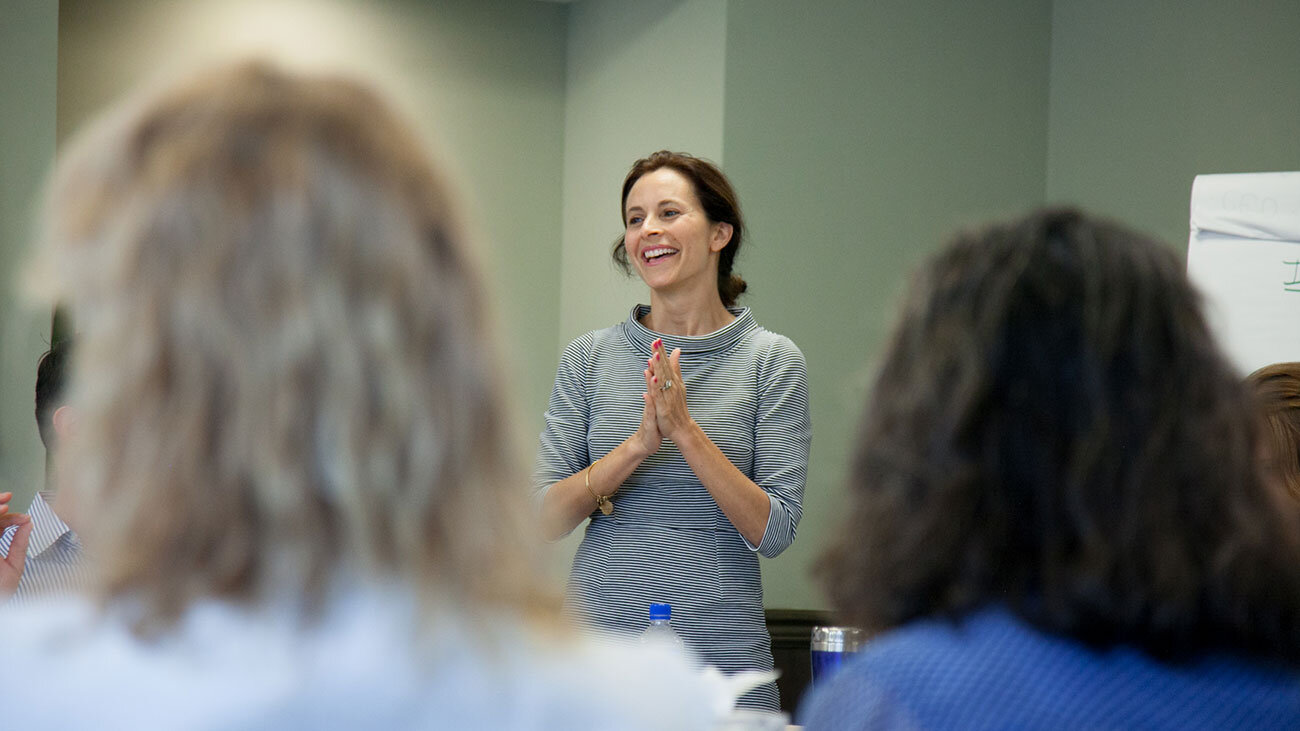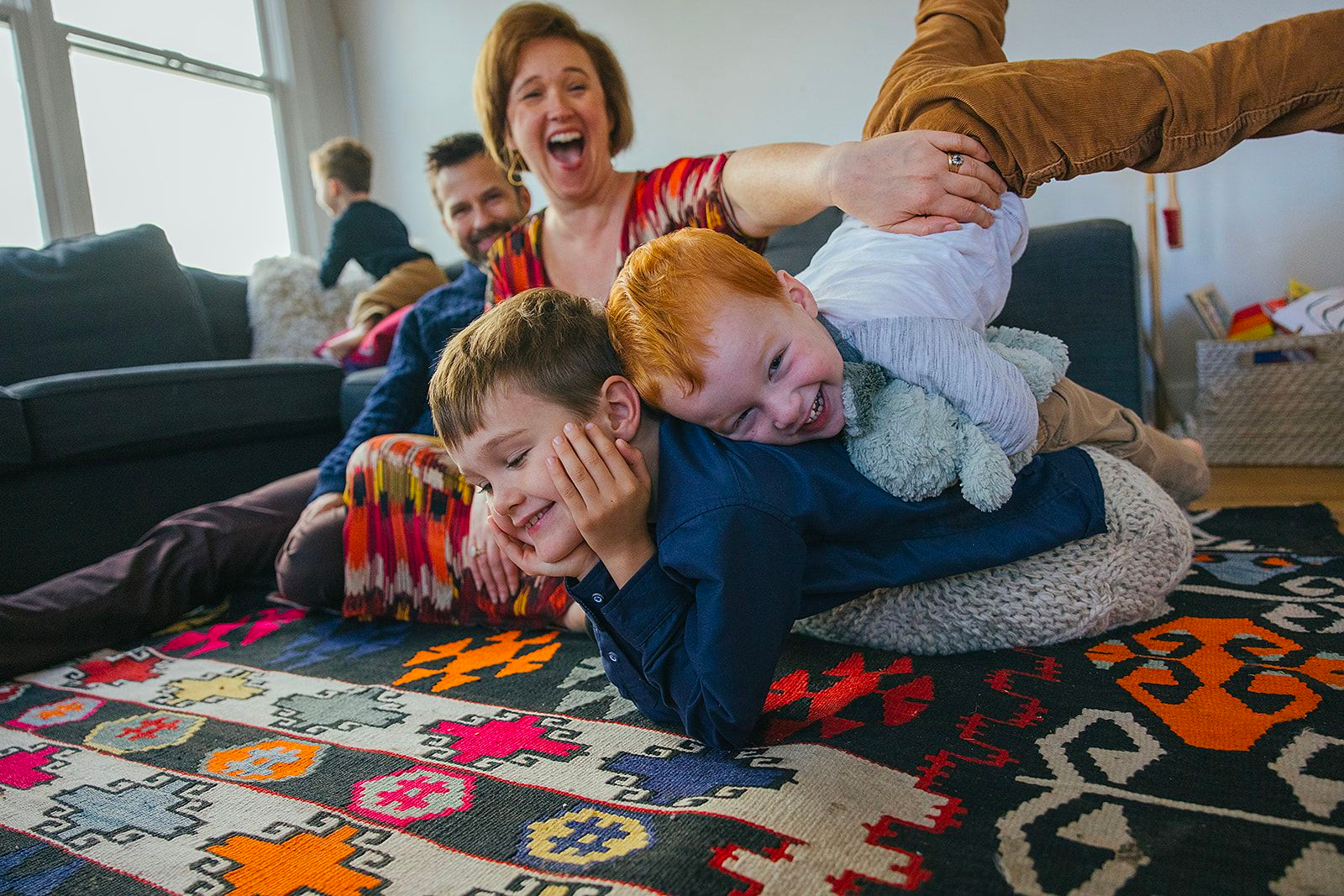
By: LUMO Leaders

I’d like to start off this article with a confession. As of two weeks ago, I firmly believed that life coaching was a bunch of hooey. I’ve never really been into the whole “find your true self” thing and when I’m told to meditate and find “my center” at yoga, I usually just concentrate on how profusely I’m sweating.
So when I met up with Sarah Olin, a local life coach, I wasn’t sure what we were going to talk about for a whole hour. Isn’t her entire job just telling people, “Don’t give up, you can do it!”?
But as soon as I sat down with Sarah (who’s adorable by the way) I realized that I knew absolutely nothing about life coaching. Here’s our conversation:
Me: What’s the difference between a life coach and a therapist?
Sarah: Therapy is typically a conversation about healing. It’s usually a past-based conversation about something that happened to you. For example, I wouldn’t coach therapeutic issues like addiction, trauma or abuse. These are issues that aren’t coachable.
Instead of spending a long time talking about why things are the way they are, coaching is a conversation about your future and what you want. It can be anything, from coaching people on their relationships, careers or even fitness goals.
(Side note. Two real-life client examples Sarah gave were: (1) A woman who hated her mother-in-law and needed coaching to save that relationship and (2) A woman who believed that all men are liars and needed coaching to overcome this belief and obtain a happy relationship.)
Me: Do you have to be certified to be a life coach?
Sarah: No. Coaching is largely unregulated. But we do have a governing body, the International Coaching Federation. There are people who take an afternoon workshop and think that they’re a coach. In my experience, the really successful coaches are highly trained.
Me: Who are your clients?
Sarah: I have clients all over the world. I coach corporate clients, couples, young adults and moms. We meet in coffee shops, on the phone and through video conferencing.
Me: What kinds of people would really benefit from a life coach?
Sarah: Life coaching is for people who have a dream or desire and don’t know how to get it. (Or think that they don’t know how.) It’s for people who feel stuck, people who wake up in the morning and aren’t excited about their lives… At some point everyone should see a life coach.
Me: Do you help people with weight loss?
Sarah: Yes. Most people have some kind of a well-being project. But it’s not about the weight-loss. We look at the larger things that are really going on for people because it’s never about the thing that you think it is.
Me: Do people cry during sessions?
Sarah: Yes. It happens all the time.
Me: Have you seen a coach?
Sarah: In my opinion, all coaches should have coaches. You have to practice what you preach.
Me: You said that a big part of coaching is holding people accountable. Is it hard saying things to clients that they don’t want to hear?
Sarah: Sometimes you have to say things that people don’t want to hear because it’s in service of their greater good. It’s my job to be blunt. But that’s why it’s important to find a coach you can trust.
Me: What’s an example of you being blunt?
Sarah: I once had to ask a woman, “When are you going to stop feeling sorry for yourself?” But then she responded, “You know what? You’re right.”
In coaching you want to say the thing that’s going to get you fired. Because what you care about is making a difference. I’m constantly pushing people past their comfort zone.
And she’s not kidding. That’s exactly what she did with me.
For my life coaching session, Sarah and I met at Starbucks. I was a little nervous that the guy pretending to do work behind us was going to eavesdrop, but luckily the music in that place is ungodly loud.
Sarah pulled out a notebook, smiled at me and in that moment I knew that sh*t was about to get real.
For the next hour Sarah and I talked about deep stuff. The kind of stuff you talk to your best friend about at a sleepover when everyone else has fallen asleep.
The most eye-opening part of our conversation happened when I made a joke about having anxiety. Sarah stopped me and said, “When you tell yourself that you have anxiety, it becomes a truth.”
But I was confused. I do have anxiety; a doctor told me so. But she explained that if I continue to tell myself “I have anxiety,” it will only make my anxiety worse.
What would happen if I stopped telling myself that I have anxiety? Could it help? I don’t know, but, hey, I might as well try.
After our session, I felt relaxed, inspired and excited for the future. A few hours later, Sarah emailed me some notes from our session and a list of things to keep in mind.
This one was my favorite:
“Print and post on a sticky note. If there was nothing wrong and nothing to fix. What would you do or say?”
So if you’re feeling stuck or have a goal that you can’t seem to reach, it may be time to contact Sarah. She offers a sample session for free so you can try out life coaching and see if you guys click. And, if, nothing else, meet up with her and ask to see pictures from the photo shoot she did with her ridiculously cute family. You won’t be disappointed.

LUMO Leaders
Keep Reading
Want more? Here are some other blog posts you might be interested in.

October is Pregnancy and Infant Loss Awareness Month, a topic we’re very connected to here at LUMO, with our roots in the coaching and support of working parents and mothers. We’re so lucky to have the incredible Jenn Andreou as part of our LUMO coaching team, and as part of her own loss and grief […]

It’s that time of year again. The much-anticipated (yet frequently dreaded) one day a year where we celebrate everything that moms are to their families – Mother’s Day. Mother’s Day brings up a lot of emotions for people, and not all of it is of the “boy I’m glad to be celebrated” variety. At LUMO, […]

Yes, yes. It’s a new year! Maybe you’ve heard? Anna here. I’m not much of a resolution person, but I do like to do a little look behind/look ahead in early January and set some intentions. At its very best, the turn of the year can be a time to reflect on the successes of […]

